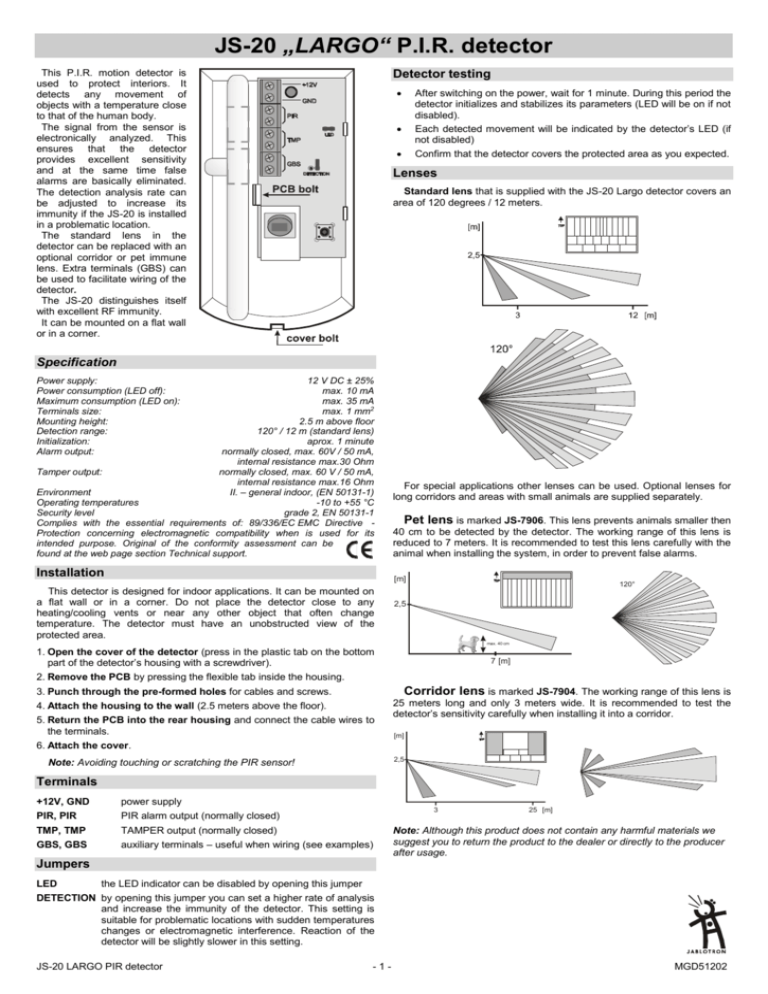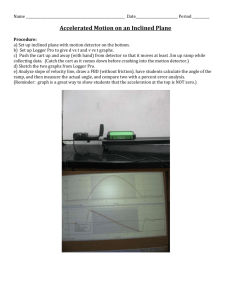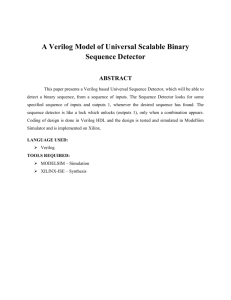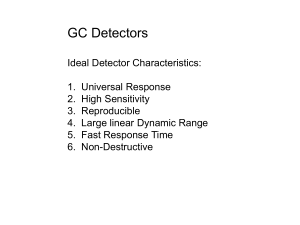Specification - JR International
advertisement

JS-20 „LARGO“ P.I.R. detector This P.I.R. motion detector is used to protect interiors. It detects any movement of objects with a temperature close to that of the human body. The signal from the sensor is electronically analyzed. This ensures that the detector provides excellent sensitivity and at the same time false alarms are basically eliminated. The detection analysis rate can be adjusted to increase its immunity if the JS-20 is installed in a problematic location. The standard lens in the detector can be replaced with an optional corridor or pet immune lens. Extra terminals (GBS) can be used to facilitate wiring of the detector. The JS-20 distinguishes itself with excellent RF immunity. It can be mounted on a flat wall or in a corner. Detector testing After switching on the power, wait for 1 minute. During this period the detector initializes and stabilizes its parameters (LED will be on if not disabled). Each detected movement will be indicated by the detector’s LED (if not disabled) Confirm that the detector covers the protected area as you expected. Lenses Standard lens that is supplied with the JS-20 Largo detector covers an area of 120 degrees / 12 meters. Specification Power supply: Power consumption (LED off): Maximum consumption (LED on): Terminals size: Mounting height: Detection range: Initialization: Alarm output: 12 V DC ± 25% max. 10 mA max. 35 mA max. 1 mm2 2.5 m above floor 120° / 12 m (standard lens) aprox. 1 minute normally closed, max. 60V / 50 mA, internal resistance max.30 Ohm Tamper output: normally closed, max. 60 V / 50 mA, internal resistance max.16 Ohm Environment II. – general indoor, (EN 50131-1) Operating temperatures -10 to +55 °C Security level grade 2, EN 50131-1 Complies with the essential requirements of: 89/336/EC EMC Directive Protection concerning electromagnetic compatibility when is used for its intended purpose. Original of the conformity assessment can be found at the web page section Technical support. Installation For special applications other lenses can be used. Optional lenses for long corridors and areas with small animals are supplied separately. Pet lens is marked JS-7906. This lens prevents animals smaller then 40 cm to be detected by the detector. The working range of this lens is reduced to 7 meters. It is recommended to test this lens carefully with the animal when installing the system, in order to prevent false alarms. [m] This detector is designed for indoor applications. It can be mounted on a flat wall or in a corner. Do not place the detector close to any heating/cooling vents or near any other object that often change temperature. The detector must have an unobstructed view of the protected area. 120° 2,5 max. 40 cm 1. Open the cover of the detector (press in the plastic tab on the bottom part of the detector’s housing with a screwdriver). 7 [m] 2. Remove the PCB by pressing the flexible tab inside the housing. 3. Punch through the pre-formed holes for cables and screws. 4. Attach the housing to the wall (2.5 meters above the floor). 5. Return the PCB into the rear housing and connect the cable wires to the terminals. 6. Attach the cover. Corridor lens is marked JS-7904. The working range of this lens is 25 meters long and only 3 meters wide. It is recommended to test the detector’s sensitivity carefully when installing it into a corridor. [m] 2,5 Note: Avoiding touching or scratching the PIR sensor! Terminals +12V, GND power supply PIR, PIR PIR alarm output (normally closed) TMP, TMP TAMPER output (normally closed) GBS, GBS auxiliary terminals – useful when wiring (see examples) 3 25 [m] Note: Although this product does not contain any harmful materials we suggest you to return the product to the dealer or directly to the producer after usage. Jumpers LED the LED indicator can be disabled by opening this jumper DETECTION by opening this jumper you can set a higher rate of analysis and increase the immunity of the detector. This setting is suitable for problematic locations with sudden temperatures changes or electromagnetic interference. Reaction of the detector will be slightly slower in this setting. JS-20 LARGO PIR detector -1- MGD51202 Examples of wiring the JS-20 Largo detector using end-of-line resistors and double end-of-line resistors (Auxiliary GBS terminals are used to facilitate the wiring) Example of wiring of several JS-20 Largo detectors into the double EOL loop (Auxiliary GBS terminals are used to facilitate wiring) Example of wiring of several JS-20 Largo detectors into the EOL loop JS-20 LARGO PIR detector (Auxiliary GBS terminals are used to facilitate the wiring) -2- MGD51202







